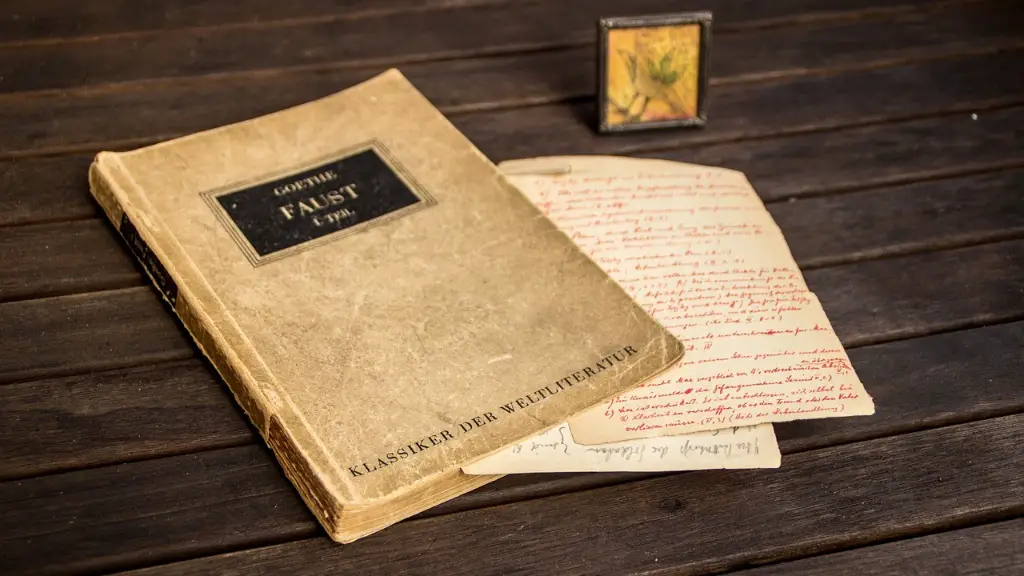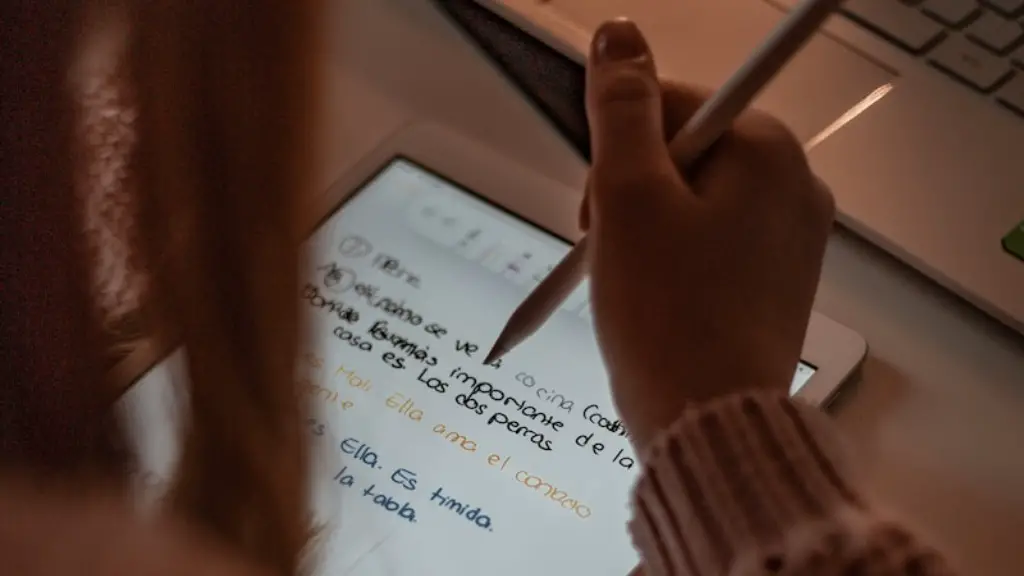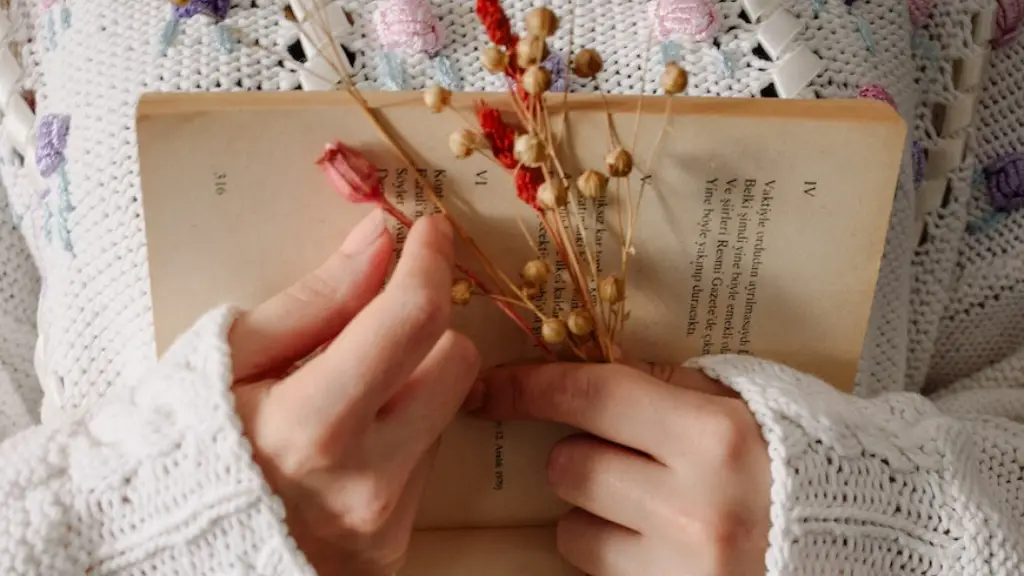Exploring the Mindful Benefits of Poetry
Poetry has been around for thousands of years, and continues to play a powerful role in connecting people to the human experience. Across generations and cultures people have expressed their deepest emotions using the written form. Learning and teaching poetry provides an incredibly powerful and valuable experience for both students and teachers. In the era of new technologies, teaching poetry can provide a valuable and meaningful way to connect with ourselves and each other.
Within the educational curriculum, poetry is an effective tool to help cultivate and foster creative thinking, problem-solving and auditory development in students. Not only does poetry build literacy skills, but it teaches students about storytelling, expression and language. By engaging with poetry in the classroom, students can develop and practise creative writing, critical thinking and evaluation skills with their peers.
The beauty of poetry lies in its ability to capture all realms of the human experience from joy to sorrow, love to loss. By using poetic language, we can navigate and explore all the emotions life has to offer. Poetry allows us to gain introspective insight and look within our thoughts, giving us an opportunity to focus and reflect.
Experiencing and learning poetry opens up a channel to become aware of our feeling states and to observe our internal and external dialogue. As humans, we are constantly experiencing a range of emotions and reactions, and poetry has the power to enhance our ability to ask meaningful questions, direct our attention and self-analyze. By creatively weaving together poetic elements such as rhythm, language and meaning, poetry can be used as an effective tool to grasp personal awareness.
By exploring the power of poetry in classrooms, we can support the personal and emotional development of young people. Not only does poetry bring an appreciation for complex emotion and feeling, but allows for creative growth and helps young people express their feelings in an expressive and poetic form.
For young children, poetry can be an especially powerful tool for cognitive and creative development. Through the use of rhyme and alliteration, children can explore rhythm and the language around them. The process of engaging with and understanding poetry can be an incredibly rewarding experience and provides children with a space to explore their creativity. Teachers can use poetry to support and nurture young students in developing both physical and mental skills.
Impact Of Poetry On Creativity and Self Development
One of the most precious gifts that poetry can give us is the ability to create and explore new ideas. By unpacking poetry, we have the opportunity to rebuild the language around us and make an entirely new meaning of our own. Through words, we can truly express ourselves and discover ideas, images and feelings that we never thought possible.
Learning and teaching poetry can give students a sense of ownership within their creative projects. Poetry has the power to stimulate creative thought, which can help support innovative development within young people. As we explore the language and expression of poetry, we can break down our prejudices and come to a more meaningful understanding of ourselves.
In the classroom, poetry can be used to draw out new perspectives from students, such as cultural and social awareness. This can be achieved through analysing the political roots of different works and the history embedded within poems. By understanding the context of poetic works, we can uncover a different set of skills and open our minds to a variety of possibilities.
Teachers also have the unique opportunity of inspiring and encouraging students to use their own creativity. With the use of different poetic genres, teachers can support children in developing their emotional intelligence and finding new ways to express their ideas. Whether it’s exploring contemporary hip hop or creating their own spoken word piece, teachers can guide and mentor students on their creative journey.
Technology and the Future of Poetry
In the digital age, poetry is transforming into its own unique form. With technology, we have become exposed to a different type of poetry, such as rap and spoken word. Because of this, young people have the opportunity to engage with their own interests and take ownership of their own learning by producing their own spoken word pieces. By using different media platforms and technological tools, teachers can aid students in becoming tech savvy while using their own creativity.
Technology has given us a huge platform to explore different types of poetry. Programs such as ‘Vocabulary Wordsmith’ allow people to write unique and personal poems by using an online program that uses user inputs. With modern-day programs such as these, we can use technology to help cultivate creative growth and challenge our understanding of traditional poetry.
As technology expands and develops, teachers have access to a variety of new tools to get students engaged in their learning. By using different technological devices, such as interactive whiteboards, teachers can broaden their educational content and allow students to experience a deeper connection with their learning.
The use of technology has also given us the ability to access a wide range of educational materials. Through websites such as YouTube, teachers can source an array of materials to help support their lessons. This encourages students to engage with different materials while using the innovative tools they are exposed to.
The Power of Poetry in Education
Learning and teaching poetry can provide a unique experience for both students and teachers. Not only does it aid our understanding of language and communication, but it also helps faculty and students to build meaningful relationships. Through the use of poetry students can gain insights into the world and unlock their creativity.
With the emergence of technology, we are given a plethora of tools and resources to enhance our understanding of poetry. Technology gives us the ability to explore a variety of materials and create our own works of poetry. Teaching poetry provides an exciting opportunity to develop meaningful relationships, practice creative writing, evaluate language and discover new perspectives.
The future of poetry lies in the hands of creative and innovative thinkers. By using technology, we can open up a new range of possibilities within the educational system while using poetry to explore the human experience. Through poetry, we can nurture the personal and emotional development of students and create an environment of creative learning.
Bringing Poetry to Life In The Classroom
Poetry is a powerful tool to cultivate creative intelligence in young people. By engaging with poetic works, we can ignite a spark of self-discovery and understanding within each student. As teachers, we have the opportunity to create a space for discovery and bring poetry to life.
In order to make poetry relevant to students, teachers can relate the subject to their own lives. For example, teachers can discuss their own motivational stories and express their feelings in poetic form. This not only encourages students to think outside the box but also shows them the value of poetic expression.
It is also important to provide students with a range of different types of poetry. By introducing different contexts and forms, students can explore the idea of poetic expression and find their own voice. Teachers should also take the time to provide feedback on students’ works and create a space where they feel comfortable expressing themselves.
When teaching poetry in the classroom, teachers should also provide a range of stimulus material such as youtube videos, music and works of famous poets. This will give students a platform to explore their interests while pushing them to be more creative in their self-expression.
Developing Student Confidence Through Poetry
When teaching poetry in the classroom, teachers can ensure that their students are immersed in an environment of creativity and exploration. By providing a sense of comfort, students can develop their own sense of confidence and self-esteem.
Teachers should also remember that learning to write poetry takes a great deal of effort and practice. Students should be given the time and space to explore their own ideas and practice their written skills. By making poetry fun and enjoyable, teachers can help guide their students in becoming more confident with their writing.
Teachers can also encourage their students to perform their own works of poetry. No matter how experienced a student is with writing or poetry, they should be encouraged to explore their creativity and perform their work in front of an audience. Performance provides an invaluable experience for students and allows them to express their feelings with confidence.
Finally, teachers should ensure that their students are exposed to a variety of poetic forms and works. By exploring different poetic works, students can gain an appreciation for different styles and techniques and draw inspiration from them.
Conclusion
The importance of teaching poetry lies in its ability to cultivate creative thinking and self-expression. By engaging with the language and expression of poetry, we can discover a new way to explore our feelings and reach a greater understanding of ourselves. Poetry has the potential to unlock our hidden creativity and open our eyes to the diversity of the world around us.





